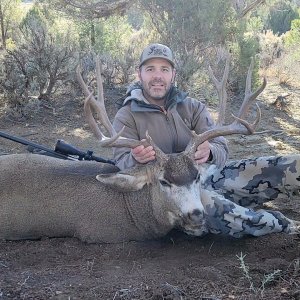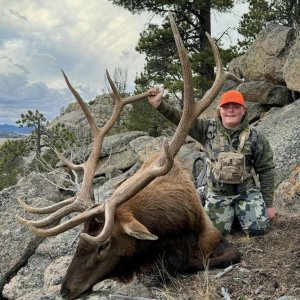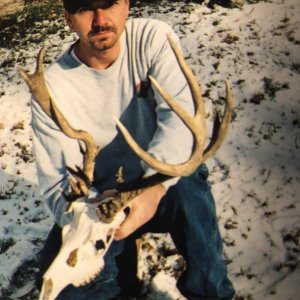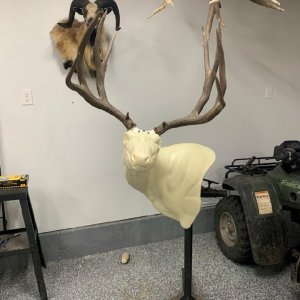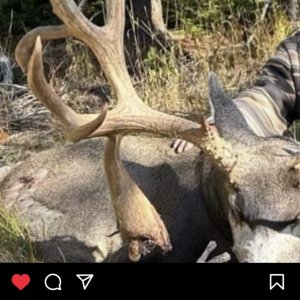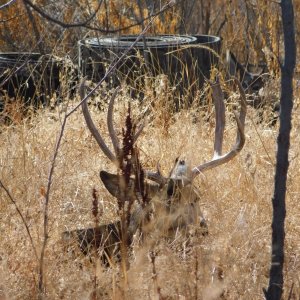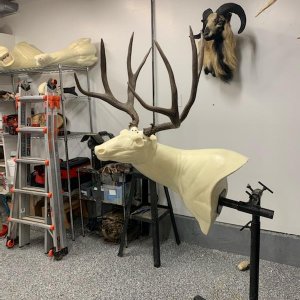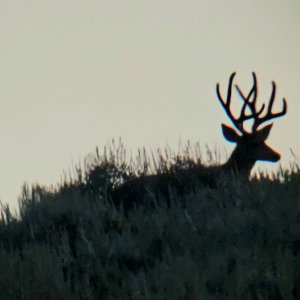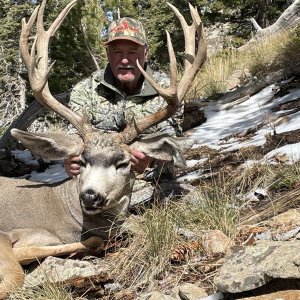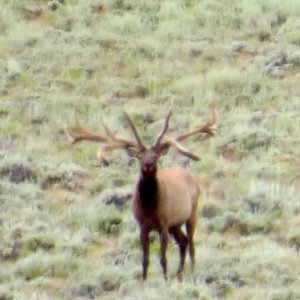B
bittersweetmuleymeat
Guest
I posted this in "General" but maybe here it is more appropriate as these are the species of MOST concern. ...This is kind of a scary deal for the FWP trying to manage Montanas big game populations in todays modern time. (Especially sparse and fragile species like Bighorns, Goats and Moose. To make a long story short, some of Montanas Native Indian Tribes are proposing to harvest up to 50 (each)Bighorn Sheep, Mountain Goats, Antelope, Moose, Bison, Elk, Deer and Antelope on Public lands in Montana. What a devistating blow should they decide to excersize this treaty "right" I have some "mixed" opinions on this to say the least. What do you guys think?
FWP reports waste in tribal buffalo kills
By BRETT FRENCH
Of The Gazette Staff
Three cases of wasted game have been documented near Gardiner by state wardens after buffalo kills by Nez Perce tribal members.
Since the American Indian hunters are not governed by state law, all the state can do is document the cases and pass them on to tribal law enforcement.
"We had some instances of waste, but that's waste by Montana's definition," said Mel Frost, information officer for Fish, Wildlife and Parks in Bozeman. "We're working with two different sets of regulations. The Nez Perce have their own regulations."
Under Montana law, hunters are required to use the four quarters above the hock, the loin and backstrap.
Frost said wardens made case reports and sent them to the Nez Perce Tribal Council and asked it to look into the incidents. Members of the tribal council could not be reached for comment.
As far as Frost knows, the tribe has taken six bison under its treaty rights, three on Jan. 13, one on Jan. 18 and two on Monday. Neither tribal hunters nor those licensed through the state are required to report when and where they kill bison.
Last year, the Nez Perce Tribe began exercising its 1855 treaty rights to hunt bison in Montana on "open and unclaimed lands" - essentially federal lands outside Yellowstone National Park. But this year the tribe wrote a letter to Fish, Wildlife and Parks notifying the department that it planned to kill 50 to 70 bison and take 50 other game animals, including elk, moose, antelope, bighorn sheep and mountain goats.
Concerned about the direction the tribe was taking, especially given that the harvest of species such as mountain goats and bighorn sheep are minimal and closely regulated, FWP Director Jeff Hagener and other Montana representatives met with the tribal council Jan. 18.
Hagener said Council Chairman Rebecca Miles assured the Montana group that the letter wasn't meant to scare them and that the council was concerned about the management of species. Other council members, however, asserted their right to hunt the animals under treaty guarantees.
Hagener said he brought up the issue of game waste with the council.
"From what we understood, their regulations require them to not waste game," he said. "(Miles) said they were very strict about that, and that it was not only a violation of codes, but dishonors the bison."
Hagener said he requested some type of confirmation that the violations had been handled.
Although the Nez Perce Tribe's exercising of its treaty rights has thrown a wrench in FWP's carefully crafted bison hunt, things could be more complicated next season. The Confederated Salish Kootenai Tribe in northwest Montana has bison hunting rights that it plans to exercise next year.
"It's a situation we haven't dealt with before," Hagener said. "If both tribal groups want to hunt, we need to sort out a different system to avoid competition. If each segment is doing their own thing, we will run into trouble."
FWP reports waste in tribal buffalo kills
By BRETT FRENCH
Of The Gazette Staff
Three cases of wasted game have been documented near Gardiner by state wardens after buffalo kills by Nez Perce tribal members.
Since the American Indian hunters are not governed by state law, all the state can do is document the cases and pass them on to tribal law enforcement.
"We had some instances of waste, but that's waste by Montana's definition," said Mel Frost, information officer for Fish, Wildlife and Parks in Bozeman. "We're working with two different sets of regulations. The Nez Perce have their own regulations."
Under Montana law, hunters are required to use the four quarters above the hock, the loin and backstrap.
Frost said wardens made case reports and sent them to the Nez Perce Tribal Council and asked it to look into the incidents. Members of the tribal council could not be reached for comment.
As far as Frost knows, the tribe has taken six bison under its treaty rights, three on Jan. 13, one on Jan. 18 and two on Monday. Neither tribal hunters nor those licensed through the state are required to report when and where they kill bison.
Last year, the Nez Perce Tribe began exercising its 1855 treaty rights to hunt bison in Montana on "open and unclaimed lands" - essentially federal lands outside Yellowstone National Park. But this year the tribe wrote a letter to Fish, Wildlife and Parks notifying the department that it planned to kill 50 to 70 bison and take 50 other game animals, including elk, moose, antelope, bighorn sheep and mountain goats.
Concerned about the direction the tribe was taking, especially given that the harvest of species such as mountain goats and bighorn sheep are minimal and closely regulated, FWP Director Jeff Hagener and other Montana representatives met with the tribal council Jan. 18.
Hagener said Council Chairman Rebecca Miles assured the Montana group that the letter wasn't meant to scare them and that the council was concerned about the management of species. Other council members, however, asserted their right to hunt the animals under treaty guarantees.
Hagener said he brought up the issue of game waste with the council.
"From what we understood, their regulations require them to not waste game," he said. "(Miles) said they were very strict about that, and that it was not only a violation of codes, but dishonors the bison."
Hagener said he requested some type of confirmation that the violations had been handled.
Although the Nez Perce Tribe's exercising of its treaty rights has thrown a wrench in FWP's carefully crafted bison hunt, things could be more complicated next season. The Confederated Salish Kootenai Tribe in northwest Montana has bison hunting rights that it plans to exercise next year.
"It's a situation we haven't dealt with before," Hagener said. "If both tribal groups want to hunt, we need to sort out a different system to avoid competition. If each segment is doing their own thing, we will run into trouble."

